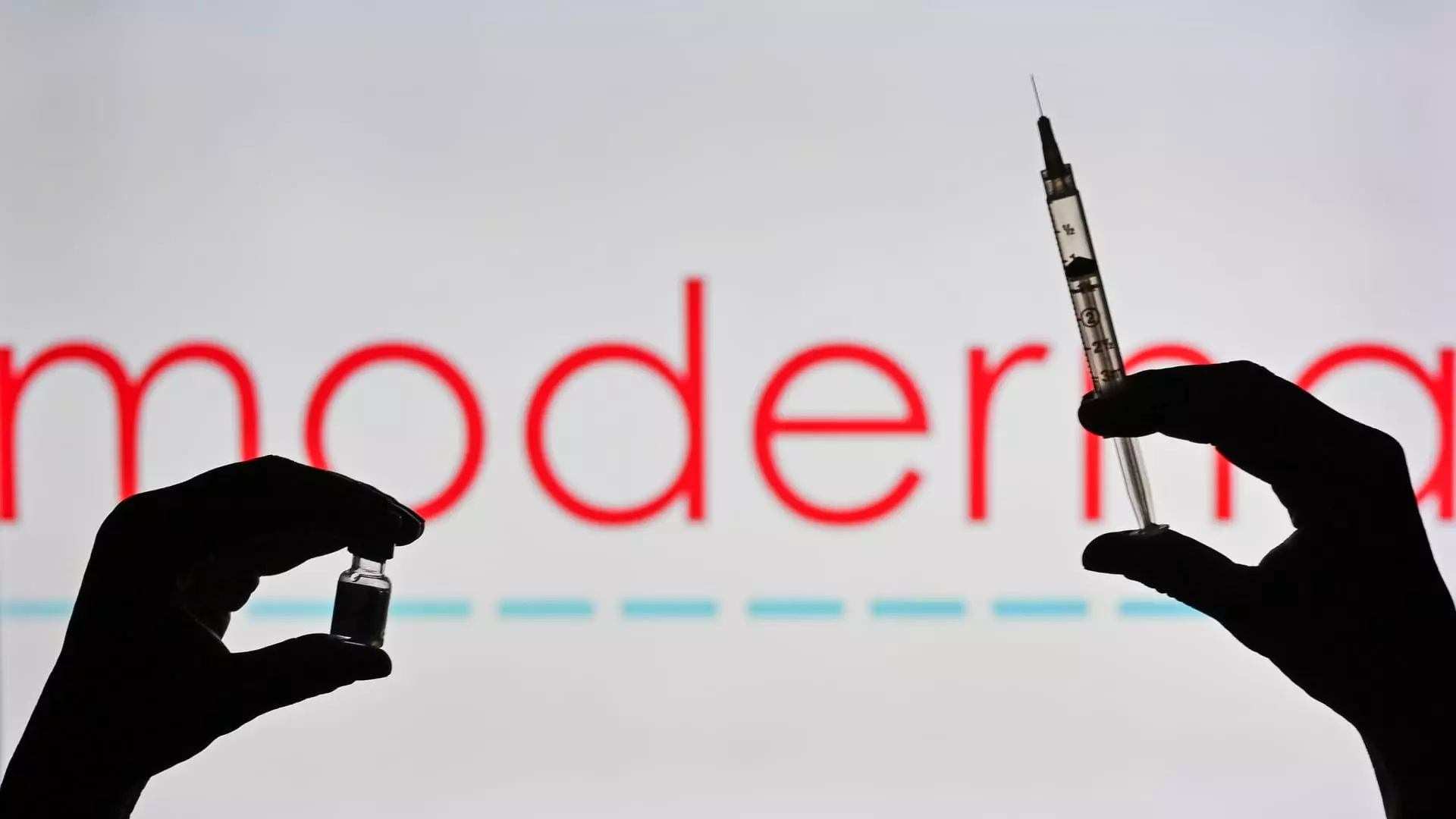Recently, Moderna and Merck shared promising three-year data on their innovative vaccine, which was administered to individuals suffering from the deadliest form of skin cancer in conjunction with Keytruda therapy. This groundbreaking combination not only enhanced survival rates but also demonstrated long-lasting efficacy in a midstage research study involving patients with a life-threatening form of skin cancer. The presentation of this data took place at the American Society of Clinical Oncology’s annual meeting in Chicago, highlighting significant advancements in cancer treatment.
The collaboration between Moderna and Merck has paved the way for a potential breakthrough in melanoma treatment, with a substantial proportion of patients showing extended survival rates and reduced risk of cancer recurrence. Notably, data revealed that nearly 75% of individuals who received the combination treatment remained cancer-free at the 2 1/2 -year mark, compared to 55.6% of patients who only received Keytruda. This encouraging trend was consistent across various patient subgroups, irrespective of tumor characteristics, highlighting the vaccine’s versatility in addressing a broad spectrum of melanoma cases.
One of the key findings from the study was the remarkable increase in overall survival rates among patients who received the vaccine in combination with Keytruda. After 2 1/2 years, the survival rate for these individuals was an impressive 96%, compared to 90.2% for those treated with Keytruda alone. Moreover, patients with severe melanoma who underwent the combined treatment were found to be 49% less likely to experience cancer relapse or succumb to the disease after approximately three years. This significant improvement underscores the potential of the vaccine to revolutionize melanoma therapy.
While the majority of side effects associated with the vaccine were mild, some patients reported immune-related reactions following treatment. Common side effects included fatigue, injection site pain, and chills, indicating a relatively well-tolerated profile for the vaccine. Furthermore, the incorporation of mRNA technology in the vaccine’s design, similar to Moderna’s Covid vaccine, offers a novel approach to cancer immunotherapy by targeting specific mutations in cancer cells. This personalized treatment strategy holds promise for enhancing the body’s immune responses against cancer.
The FDA’s breakthrough therapy designation for the cancer vaccine underscores the urgent need for innovative treatments in combating life-threatening diseases like melanoma. Moderna and Merck are actively pursuing accelerated approval for the vaccine, aiming to streamline the regulatory process for expeditious delivery of groundbreaking therapies. With ongoing phase-three trials for late-stage melanoma and additional studies in lung, skin, kidney, and bladder cancer patients, these pharmaceutical giants are at the forefront of cancer research, striving to revolutionize treatment outcomes for patients worldwide.
The recent advancements in cancer treatment, particularly in the realm of melanoma therapy, exemplify the transformative potential of collaborative research and innovative technologies. Moderna and Merck’s pioneering vaccine offers new hope for patients battling aggressive forms of skin cancer, with promising outcomes and reduced risks of disease progression. As these groundbreaking therapies continue to evolve, the future of cancer treatment appears brighter, thanks to the dedication and ingenuity of scientists and pharmaceutical companies striving to make a meaningful impact on patient lives.

